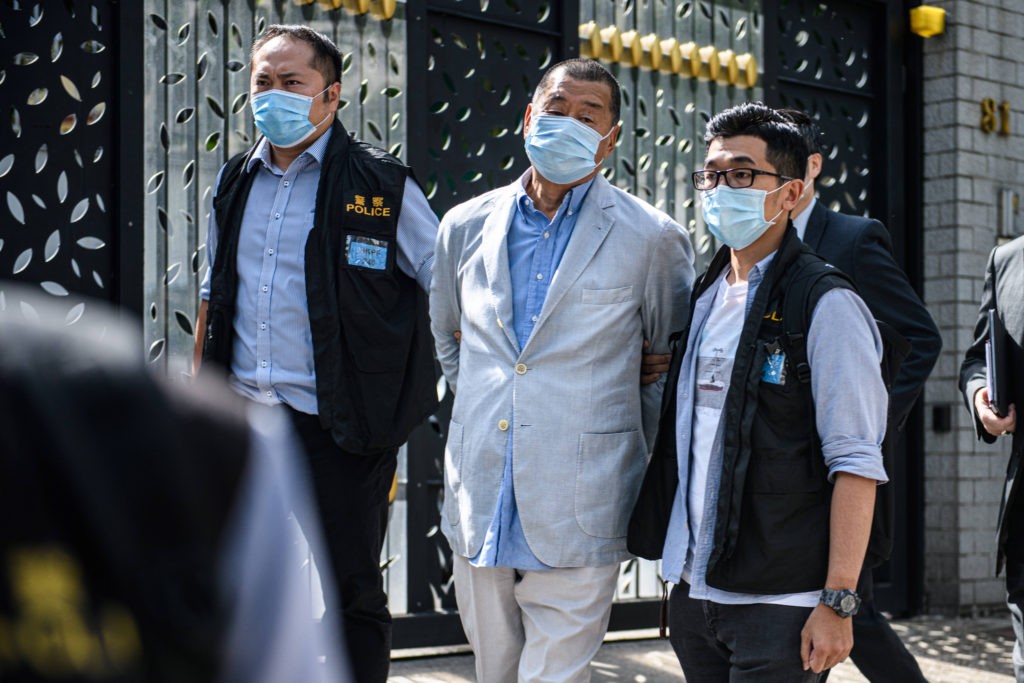Joe Kwong loves Hong Kong, but knows that leaving is the only solution to ensure his safety.
Kwong is in his 30s, has a university degree and works in construction. He is just one of several Hong Kong residents who have been forced to abandon their lives or plan to do so, given the city’s current context.
With the new National Security Law, Beijing has consolidated its control over the special administrative region. Fears of an end to civil liberties and the cessation of the rule of law have resulted in a growing desire to migrate abroad, as long as possible.
Before leaving Hong Kong, Joe said, “Hong Kong is China now. There are secret police out there. I just can’t stay here anymore, I have to go while I still can. ”
Three months have passed since the new law came into force. About 25 people were arrested on national security charges, including incitement to secession and collusion with foreign powers. Beijing used the law to respond to the waves of pro-democracy protests that marked the city, which led to the arrest of 10,000 people last year.

Kwong was one of the participants in the protests, having been arrested once. The fear of being arrested by the new law led him to choose to flee the territory. Under the BNO passport – a document issued to those born before Hong Kong was transferred to Chinese rule in 1997 – Kwong has a British national passport abroad and is able to travel to Britain. Now, he hopes to be allowed to stay before the official date in January, when the United Kingdom said, under the national security law, that it will allow BNO passport holders to live and work there as a path to citizenship.
However, this is not an isolated case. Although statistics on recent Hong Kong arrivals to the UK are not yet accounted for, dozens of Facbook pages dedicated to emigration have proliferated in recent months. Many of these pages were created by Hong Kong residents who arrived in Britain and are sharing tips on how to settle in Her Majesty’s Lands.
In 2019, the renewal and application for BNO passports broke records. According to the South China Morning Post, the number of orders was almost eight times higher, compared to the previous year.
According to a survey conducted in September 2019 by the Chinese University of Hong Kong, during last year’s protests, 42.3% of Hong Kong adults would emigrate if given the opportunity, compared with 34% the previous year. In this same group, 23% had already made plans to move, compared to 16% the previous year.
Among those inclined to emigrate, three of the four main reasons for leaving were political: 27.9% said there were “many political disputes and disagreements”, 21.5% blamed the lack of democracy and 19.5% were dissatisfied with the government Chinese.
Ken Chung, a journalist also in his 30s, is desperate to leave Hong Kong. The media has been a target under the new law. The attack on the opposition newspaper Apple Daily and the arrest of its founder, Jimmy Lai, in August was the last straw for Ken, who feels insecure.

Jimmy Lai, owner of the pro-Democratic newspaper Apple Daily to be arrested by the authorities under the Hong Kong National Security Act
According to national security law, even “inciting hatred” to the government is a crime. This particularly intimidated writers, journalists and political commentators.
“Before, I could criticize the government in my articles and I didn’t have to worry, but now, I worry about my personal safety,” says Chung, who plans to move to the UK early next year.



